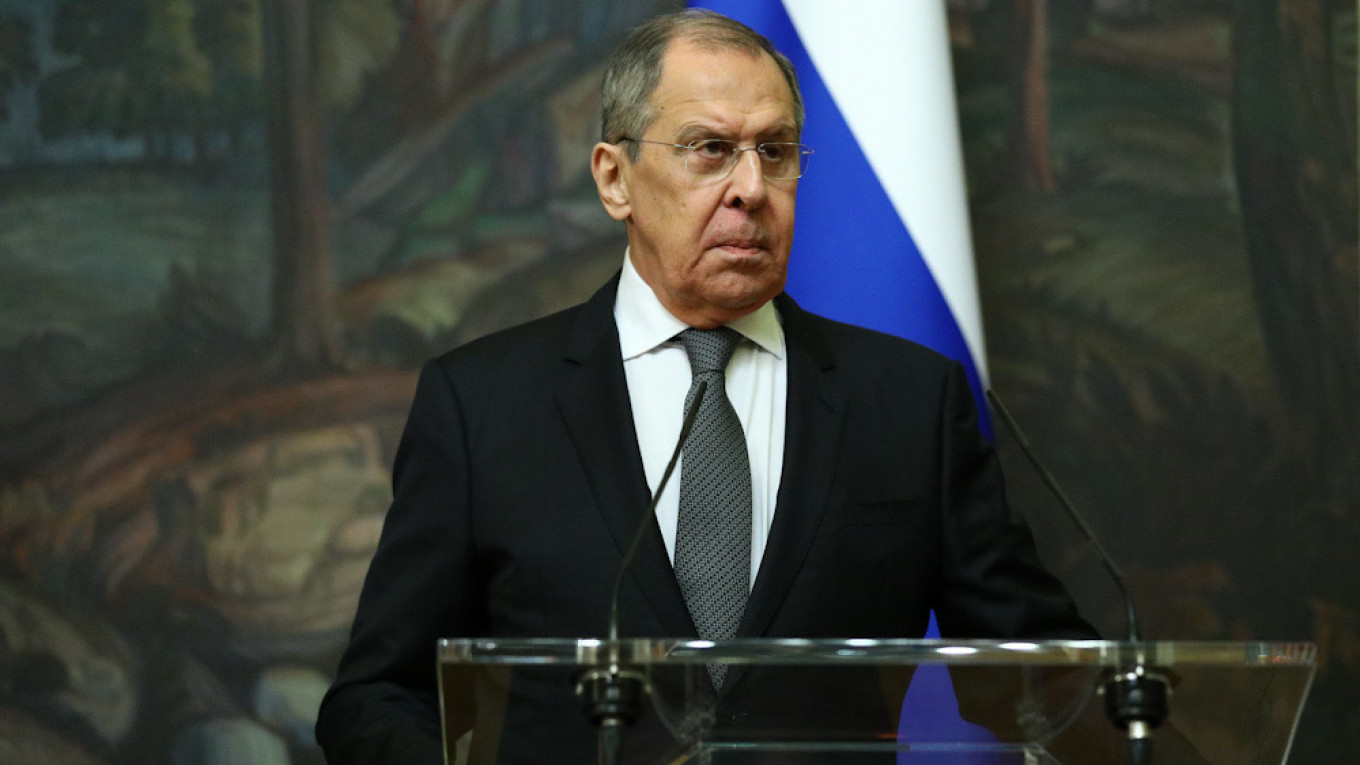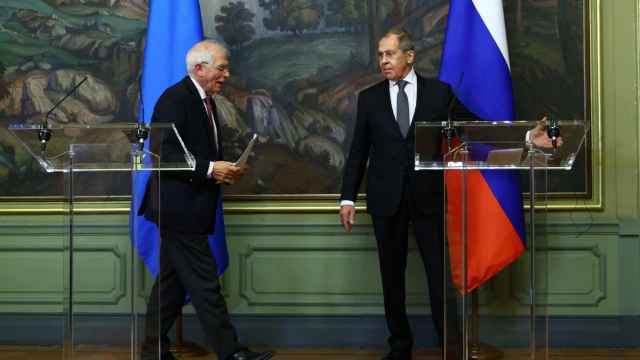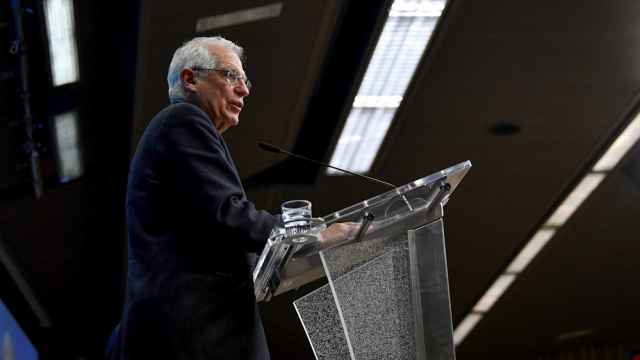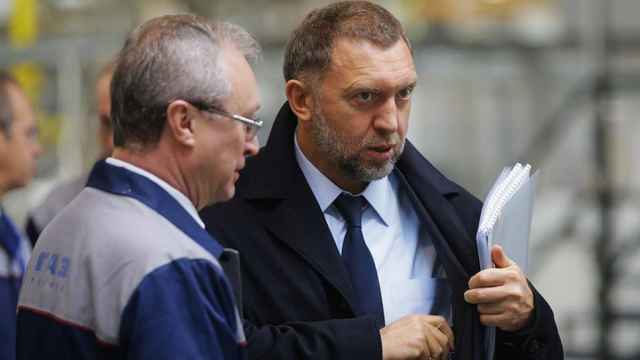Russia is ready to cut ties with the European Union if it imposes further sanctions on the Russian economy, Foreign Minister Sergei Lavrov said Thursday.
The heated rhetoric comes 10 days before top EU diplomats are scheduled to discuss new travel bans and asset freezes on President Vladimir Putin’s allies in response to the jailing of Russian opposition leader Alexei Navalny after his nerve-agent poisoning.
“We’re ready,” Lavrov said when asked by pro-Kremlin spin doctor Vladimir Solovyov about whether Russia is “heading for a break with the European Union.”
Russia’s foreign policy chief tied his willingness to sever relations with the bloc to measures that would “create risks for our economy, including in the most sensitive areas.”
“We don’t want to be isolated from the world, but we must be prepared,” Lavrov said in an excerpt of the interview published on the Foreign Ministry’s website.
The Kremlin said at Friday’s briefing that Lavrov’s words had been misinterpreted, but stressed that Russia must get ready for “independence if madness prevails.”
The 27-member bloc is likely to hit Putin’s allies with travel bans and asset freezes as soon as later this month, Reuters reported Thursday, citing three unnamed European diplomats.
The state-run RIA Novosti news agency meanwhile quoted EU foreign policy chief Josep Borrell’s spokesperson as saying that confidential work on drafting Russia sanctions is ongoing.
Borrell’s rare Moscow visit last week coincided with Russia's expulsion of diplomats from three European countries accused of attending recent street demonstrations in support of Navalny.
The expulsions infuriated European capitals, according to Reuters, triggering German and French willingness to move ahead with sanctions in response.
A Message from The Moscow Times:
Dear readers,
We are facing unprecedented challenges. Russia's Prosecutor General's Office has designated The Moscow Times as an "undesirable" organization, criminalizing our work and putting our staff at risk of prosecution. This follows our earlier unjust labeling as a "foreign agent."
These actions are direct attempts to silence independent journalism in Russia. The authorities claim our work "discredits the decisions of the Russian leadership." We see things differently: we strive to provide accurate, unbiased reporting on Russia.
We, the journalists of The Moscow Times, refuse to be silenced. But to continue our work, we need your help.
Your support, no matter how small, makes a world of difference. If you can, please support us monthly starting from just $2. It's quick to set up, and every contribution makes a significant impact.
By supporting The Moscow Times, you're defending open, independent journalism in the face of repression. Thank you for standing with us.
Remind me later.






